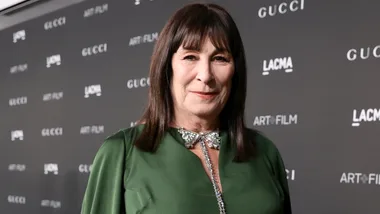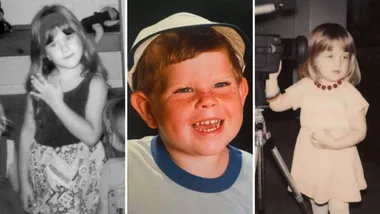Exclusive extract from The Shifting Fog (Allen & Unwin) by Kate Morton.
The week passed quickly. With so many extra people in the house I was kept busy making up rooms, carrying tea trays, laying out luncheons. This pleased me well as I was not shy of hard work — Mother had made sure of that. Besides, I longed for the weekend to arrive and with it the bank holiday play recital. For while the rest of the staff was focused on the midsummer dinner, all I could think of was the recital. I had barely seen the children since the adults arrived. The fog blew away as suddenly as it came, leaving in its place warm, clear skies too beautiful to waste indoors. Each day, as I rounded the corridor toward the nursery, I held my breath hopefully, but the fine weather was to hold and they were not to use the room again that year. They took their noise and their mischief and their Game outside.
And with them went the room’s enchantment. Stillness became emptiness and the small flame of pleasure I had nurtured was extinguished. I hurried my duties now, straightened the bookshelves without so much as a glance at their contents, no longer caught the horse’s eye; thought only of what they might be doing. And when I was finished I didn’t linger, but moved on swiftly to complete my duties. Occasionally, when I was clearing the breakfast tray from a second-floor guestroom or disposing of the night-waters, a squeal of distant laughter would draw my eyes to the window and I would see them, far off in the distance, heading toward the lake, disappearing down the driveway, duelling with long straight sticks.
Downstairs, Mr Hamilton had stirred the servants into a frenzy of activity. It was the test of a good staff, he said, not to mention the proof of a butler’s mettle, to serve a household of guests. No request was to prove too much. We were to work as a finely oiled locomotion, rising to meet each challenge, exceeding the Master’s every expectation. It was to be a week of small triumphs, culminating in the midsummer dinner.
Mr Hamilton’s fervour was infectious; even Nancy suffered an elevation of spirits and called a truce of sorts, offering, grudgingly, that I might help her clean the drawing room. It wasn’t ordinarily my place, she reminded me, to be cleaning the main rooms, but with the Master’s family visiting I was to be allowed the privilege — under strict observation — to practise these advanced duties. So it was I added this dubious opportunity to my already inflated duty load and accompanied Nancy daily to the drawing room where the adults sipped tea and discussed things that interested me little: weekend country parties, European politics and some unfortunate Austrian fellow who’d been shot in a faraway place.
The day of the recital (Sunday 2 August 1914 — I remember the date, though not for the recital as much as what came after) coincided with my afternoon off and my first visit to Mother since I’d started at Riverton. When I’d finished my morning duties I exchanged my uniform for regular clothes, strangely stiff and unfamiliar on my body. I brushed my hair out — pale and kinky where it had been wrapped in its plait — then set about rebraiding, coiling a bun at the nape of my neck. Did I look any different, I wondered? Would Mother think so? It had only been five weeks and yet I felt inexplicably changed.
As I came down the servants’ stairs and into the kitchen I was met by Mrs Townsend who thrust a bundle into my hands. ‘Go on then, take it. Just a little something for your mother’s tea,’ she said in a hushed voice. ‘Some of my lemon-curd tart and a couple of slices of Victoria sponge.’
I looked at her, taken aback by the uncharacteristic gesture. Mrs Townsend was as proud of her shipshape home economics as she was of her towering soufflé.
I glanced toward the staircase, dropped my own voice to a whisper. ‘But are you sure the Mistress—’
‘You never mind about the Mistress. She and Lady Clementine won’t be left wanting.’ She dusted down her apron, pulled her round shoulders to full height so that her chest seemed even more expansive than usual. ‘You just be sure an’ tell your mother we’re looking out for you up here.’ She shook her head. ‘Fine girl, your mother. Guilty of nothing that aint been done a thousand times before.’
Then she turned and bustled back to the kitchen as suddenly as she’d appeared. Leaving me alone in the darkened hallway, wondering what she’d meant.
I turned it over in my mind all the way to the village. It was not the first time Mrs Townsend had perplexed me with an expression of fondness for my mother. My own puzzlement left me feeling disloyal, but there was little in her reminiscences of good humour that could be accorded with the Mother I knew. Mother with her moods and silences.
She was waiting for me on the doorstep. Stood as she caught sight of me. ‘I was beginning to think you’d forgotten me.’
‘Sorry, Mother,’ I said. ‘I was caught up with my duties.’
‘Hope you made time for church this morning.’
‘Yes, Mother. The staff go to service at the Riverton church.’
‘I know that, my girl. I attended service at that church long before you came along.’ She nodded at my hands. ‘What’s that you’ve got?’
I handed over the bundle. ‘From Mrs Townsend. She was asking after you.’
Mother peeked within the bundle, bit the inside of her cheek. ‘I’ll be sure and have heartburn tonight.’ She rewrapped it, said grudgingly, ‘Still. It’s good of her.’ She stood aside, pushed back the door. ‘Come on in, then. You can make me up a pot of tea and tell me what’s been happening.’
I cannot remember much of which we spoke, for I was an unconscientious conversationalist that afternoon. My mind was not with Mother in her tiny, cheerless kitchen, but up in the ballroom on the hill where earlier I had helped Nancy arrange chairs into rows and hang gold curtains around the proscenium arch.
All the while Mother had me performing chores I kept an eye on the kitchen clock, mindful of the rigid hands marching their way closer and closer toward five o’clock, the hour of the recital.
I was already late when we said our goodbyes. By the time I reached the Riverton gates the sun was low in the sky. I wove along the narrow road toward the house. Magnificent trees, the legacy of Lord Ashbury’s distant ancestors, lined the way, their highest boughs arching to meet, outermost branches lacing so that the road became a dark, whispering tunnel.
As I burst into the light that afternoon, the sun had just slipped behind the roofline, giving the house a mauve and orange afterglow. I cut across the grounds, past the Eros and Psyche fountain, through Lady Violet’s garden of pink cabbage roses and down into the rear entrance. The servants’ hall was empty and my shoes echoed as I broke Mr Hamilton’s golden rule and ran along the stone corridor. Through the kitchen I went, past Mrs Townsend’s workbench covered with a panoply of sweetbreads and cakes, and up the stairs.
The house was eerily quiet, everyone already in attendance at the recital. When I reached the gilded ballroom door I smoothed my hair, straightened my skirt and slipped inside the darkened room; took my place on the side wall with the other servants.











